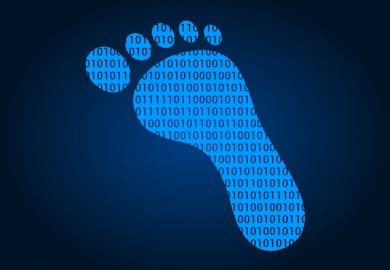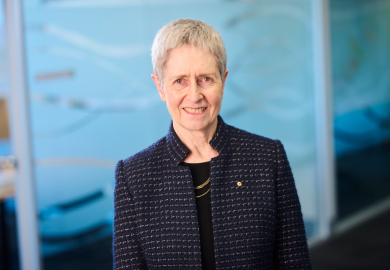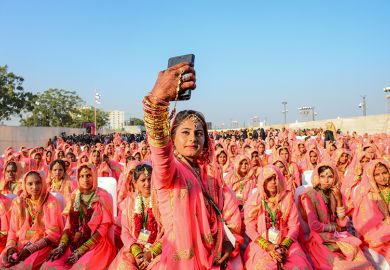Gregory Crane is an academic whose work combines some of the oldest and youngest branches of human knowledge: ancient Greek and Latin, and computer science.
He remembers when, as a doctoral student in the early 1980s, he got his hands on the Harvard University Classics department’s first computer and began to digitise classical texts, enabling basic word searches.
At the time, he realised “there’ll be a complete disruption, or discontinuity, between print scholarship and digital scholarship”.
“I want to be involved in this shift,” he thought.
Since then, Crane has made his name as one of the pioneering advocates of the digital humanities, creating huge libraries of texts and drawing out insights using data analysis.
One tool he uses is called “topic modelling”, the detection of clusters of words that coincide with a particular intellectual theme. “You can watch these clusters rise and fall over time, and see them emerge in millions of documents,” he explains. Academics can search millions of documents to see, for example, which parts of the Bible are being quoted more or less frequently in different historical periods.
Without these kind of techniques, researchers’ understanding will be “limited by how many books we can read”, he argues. “It’s the difference between reading a handful of elite and very influential sources and seeing what’s in the newspaper every day...that overview is what you get.”
But Crane, who since 2012 has been an Alexander von Humboldt professor of digital humanities at Leipzig University, and directs a course in the area that has just taught its first year of students, feels that the revolution has not yet gone far enough.
Humanities academics by and large “use the new technology to do the same damn thing”, he argues.
They ask: “Would this technology let me do the work [that] I’m already doing in a way that would more effectively impress my friends...without me learning anything?”
The “technical” work of coding, machine learning, statistics and visualisation that are central to the digital humanities are too often delegated by academics to technicians, says Crane. “There’s a power structure here,” he adds.
If faculty fail to actually get to grips with these skills, they will never take full advantage of the new tools available, he thinks. “If you frame it like that, you’re screwed; you’re never going to do anything new.”
“I do not know a single PhD programme in any country that trains future students of Greek and Latin...for 21st-century jobs,” he warns. This is because the system is “hierarchical”, he says, and professors “train people like themselves...it’s a power thing”.
Search our database for the latest global university jobs
Not everyone in the field is on board with the digital humanities agenda: an article last year in the Los Angeles Review of Books by three scholars accused it of attempting the “redefinition of technical expertise as a form (indeed, the superior form) of humanist knowledge” and the “rebranding of insecure campus employment as an empowering ‘alt-ac’ career choice”. For this reason, it was being pushed far more enthusiastically by university administrators than by academics, they argued.
But Crane sees the field as a way for universities both to sate the “exploding” number of students who want to learn computer science, while arresting a decline in the numbers studying the humanities.
For the 60 students who have taken the first year of Crane’s Leipzig course this past academic year, “this is about having your cake and eating it too”, he says. “People want to major in the humanities, but they want to have a job” after graduation.
He also has an implicit criticism of existing digital humanities courses at other universities. The Leipzig programme is “unusual” in that it gets students to do “at least a minor” in computer science, Crane says, with at least one-third of the course dedicated to the subject. Even in the first year, students use web-combing tools to, for example, detect attitudes to lesbian, gay, bisexual and transgender issues in US newspapers. “Other programmes are more accommodating,” he says.
Now, Crane’s latest research project, with German federal funding, is as ambitious as they come: an attempt to use algorithms to map the history of ideas from antiquity to the present day, analysing millions of texts to chart the influence of thinkers on each other over the course of thousands of years.
Register to continue
Why register?
- Registration is free and only takes a moment
- Once registered, you can read 3 articles a month
- Sign up for our newsletter
Subscribe
Or subscribe for unlimited access to:
- Unlimited access to news, views, insights & reviews
- Digital editions
- Digital access to THE’s university and college rankings analysis
Already registered or a current subscriber?








